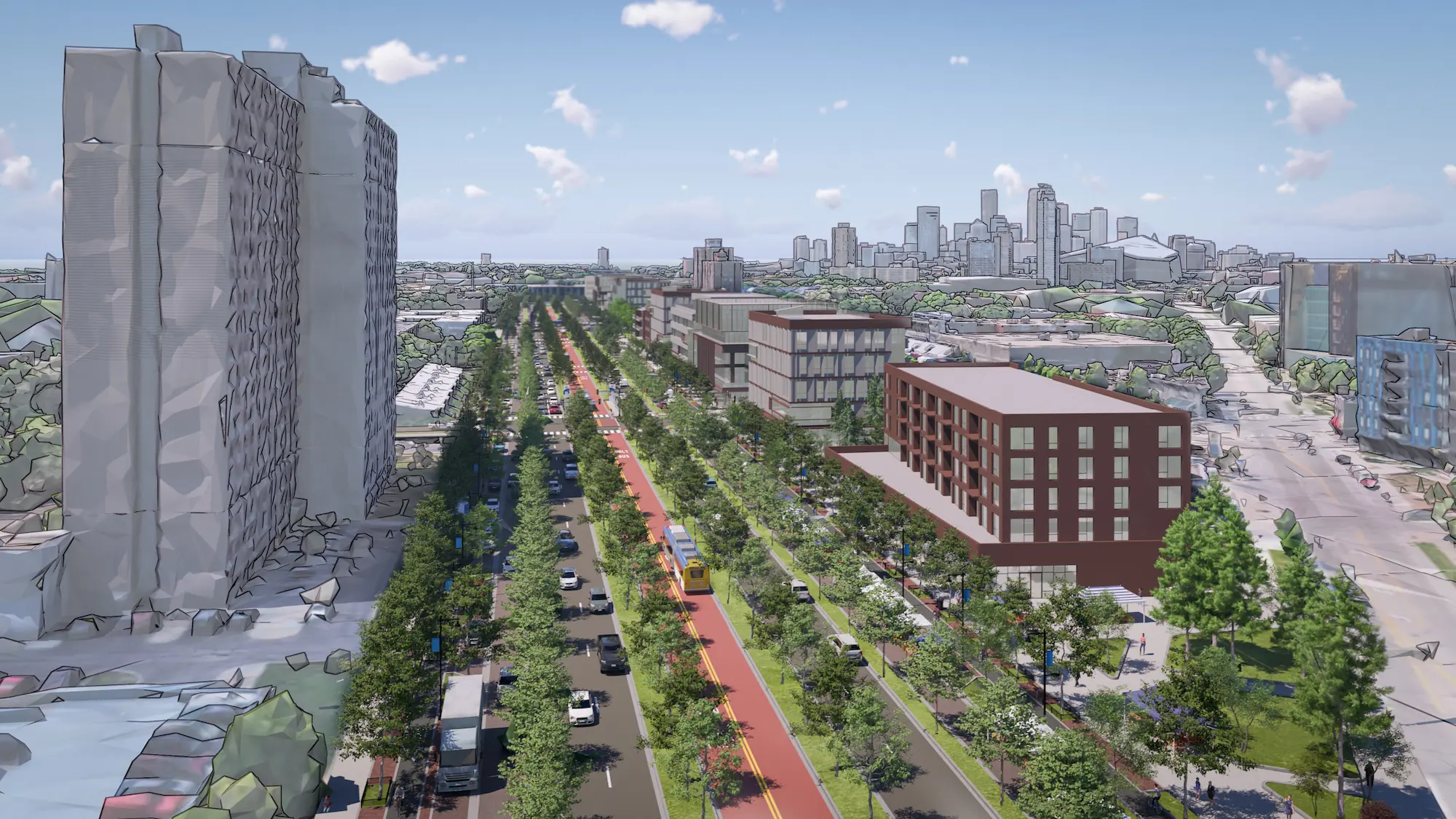
The agency plans on formally announcing just weeks before the US DOT will announce Reconnecting Communities federal grant recipients.
We were alerted by members of the Rethinking I-94 Policy Advisory Committee (PAC) that MnDOT plans to remove the boulevard (called at-grade A & B) project options from further consideration for the project. This decision will be officially unveiled during an upcoming virtual PAC meeting for the project on Friday, January 17, from 9:30 a.m. to 12:30 p.m. This is conspicuous timing, notably just weeks before the U.S. Department of Transportation will announce Reconnecting Communities grant recipients. The Twin Cities Boulevard campaign has a strong chance of receiving those federal funds, especially with a funding match from Hennepin County and the City of Minneapolis.
MnDOT has been studying 10 options for the Rethinking I-94 project, which will determine the future of I-94 between downtown Minneapolis and downtown Saint Paul. Thanks to community support for the Twin Cities Boulevard, two of these options (called “at-grade A” & “at-grade B”) would convert the highway trench back into a transit boulevard. The at-grade options would free up highway land to be returned to surrounding communities, from Rondo to Cedar-Riverside, for new affordable housing, small businesses, community centers, parks and other uses to be determined by residents. These options have growing community support, and ranked most favorably in MnDOT’s own public survey.
MnDOT plans to remove the at-grade options from further consideration, and instead will exclusively study options that would rebuild that highway. The agency is justifying this decision with bad faith arguments that prioritize endless car traffic over the health and wellbeing of impacted communities.
In a May 7, 2024 letter, many Minneapolis and Saint Paul elected officials outlined concerns with the Rethinking I-94 process and the metrics that would be used to evaluate the project options. The Reimagining I-94 report also found MnDOT’s evaluation criteria to favor options that rebuild the highway. The agency did not respond to the letter or report.
This decision perpetuates the historic injustice of I-94, where impacted communities were silenced, and neighborhoods like Rondo and Cedar-Riverside were bulldozed to build a freeway. Today, as was the case back then, phony traffic models executed by highly-paid consulting firms were used to justify routing tens of thousands of cars through densely populated neighborhoods.
This decision follows months of actions by MnDOT to silence community dissent. This included the removal of public comment during the last two project meetings and action to prevent elected officials on the project’s advisory committee from considering resolutions to communicate their priorities for the project.
It is not too late to save the Twin Cities Boulevard and keep the at-grade boulevard options on the table.
MnDOT will announce their intention to remove the boulevard options during the meeting on January 17. In the months following the meeting, MnDOT will host additional meetings and collect public comments before finalizing the project options that will advance in Fall 2025. We must act to save the boulevard options and pressure MnDOT to listen to the community they serve.
Minneapolis and Saint Paul elected officials also have leverage in this process. The Mayor and City Council Members can threaten to withhold municipal consent, which is typically required before a major highway project can begin construction. State legislators can also threaten to withhold funding for the Rethinking I-94 project, which will be needed before it can break ground.
Take Action
Register and sign up to speak at the PAC meeting on January 17. Public comment is held at the end at approximately noon.
Volunteer with us. We’ll be doorknocking the project corridor in January to educate and garner support.
Email elected officials and the MnDOT project team.
This is a setback, but we will not stop fighting for the reparative justice vision of Twin Cities Boulevard.